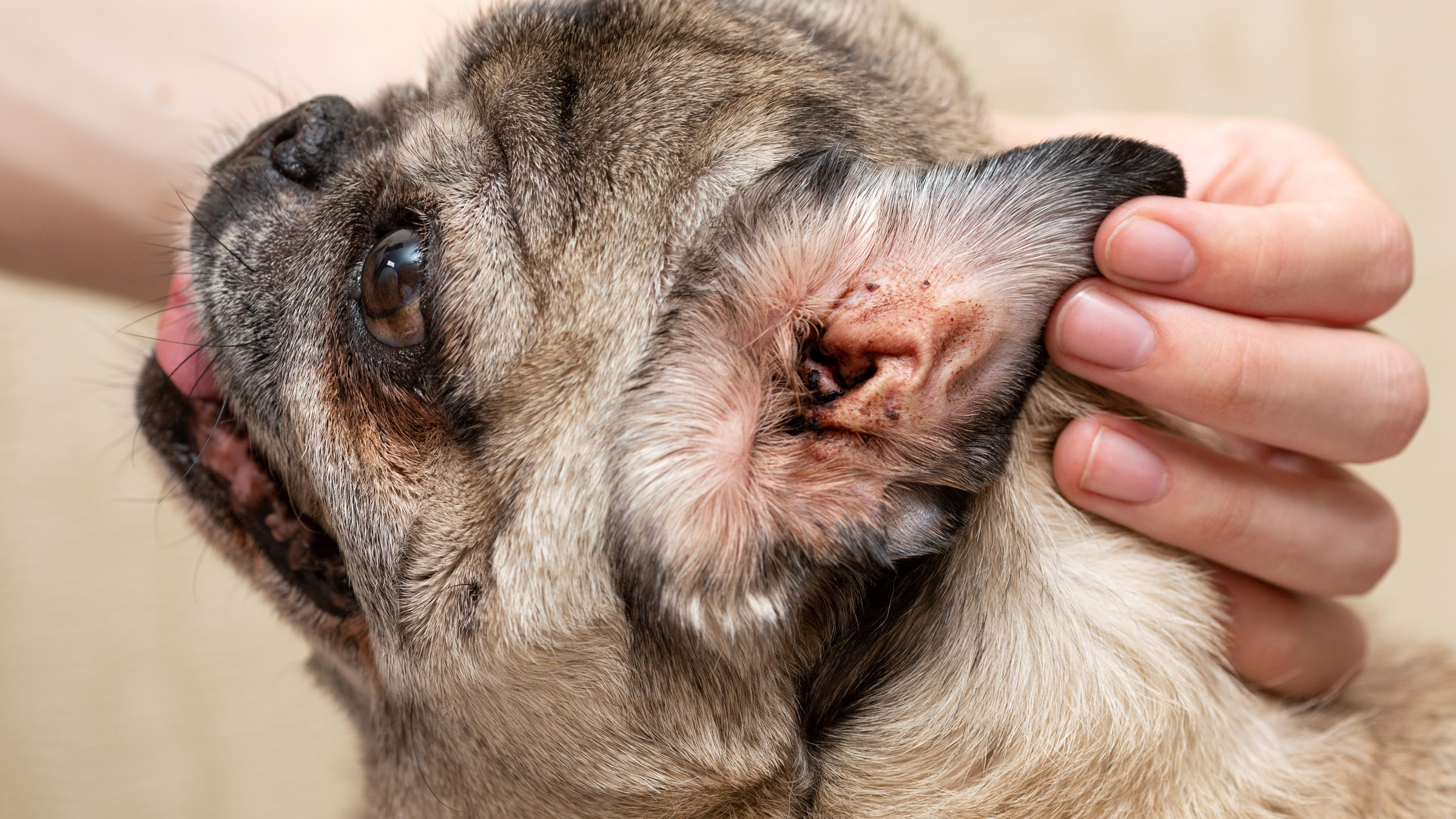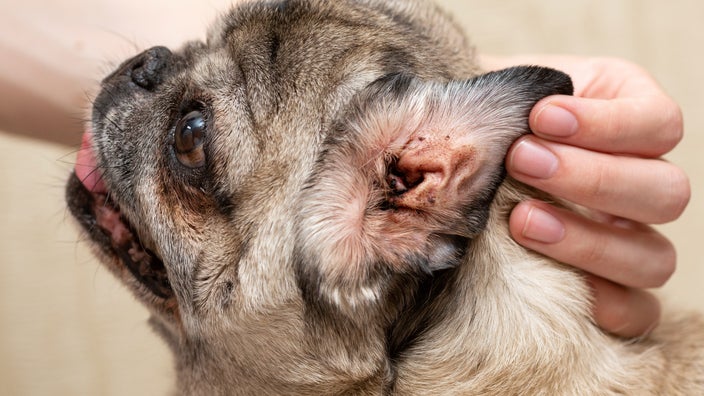To know if your dog has ear mites, watch out for symptoms like excessive scratching, head shaking, foul odor, and brown discharge. If you notice these signs, consult a veterinarian for proper diagnosis and treatment.
Ear mites are a common parasite that can affect dogs, causing discomfort and irritation. Recognizing the symptoms of ear mites is crucial for ensuring prompt treatment and relief for your pet. We will discuss the signs and symptoms of ear mites in dogs, the potential risks if left untreated, and how to effectively manage and prevent ear mite infestations.
Understanding these aspects will empower you as a dog owner to provide the best care for your furry companion. So, let’s delve into the world of ear mites, their impact on dogs, and the necessary steps to address this common issue.
Recognizing Ear Mite Symptoms In Dogs
Dogs can exhibit several symptoms if they have ear mites. Scratching and rubbing of the ears, head shaking, and tilting are common signs to look out for. Additionally, if you notice an unusual odor or discharge coming from your dog’s ears, it could be a sign of ear mites. It’s important to observe your dog’s behavior and examine their ears regularly to catch any potential issues early. Seeking professional veterinary assistance is crucial for accurate diagnosis and appropriate treatment if you suspect your dog has ear mites.
Physical Examination For Ear Mites In Dogs
Ear mites are a common issue in dogs that can cause discomfort and irritation. One way to check for ear mites is through a physical examination, which can be done by a professional veterinarian. Visual inspection of the ear canal is a primary method for identifying the presence of ear mites. If ear mites are suspected, diagnostic tests can be conducted to confirm their presence. Prompt identification and treatment of ear mites are essential to prevent further discomfort for the dog.
Treatment Options For Ear Mites In Dogs
Ear mites in dogs can be treated with medications prescribed by a veterinarian. These medications may include topical ointments or oral medications to kill the mites and relieve the associated itching. In addition to medication, cleaning the dog’s ears with a gentle ear cleaner can help manage the infestation. It’s important to prevent future infestations by regularly cleaning and inspecting your dog’s ears, especially if they are prone to ear mites. Regular grooming and deep cleaning the surrounding environment can also help prevent the spread of ear mites.

Credit: www.goodrx.com
Frequently Asked Questions For How Do You Know If Your Dog Has Ear Mites
How Do You Get Rid Of Ear Mites In Dogs?
To get rid of ear mites in dogs, use a vet-recommended ear cleaner. Gently clean the ears to remove mites and debris. Use prescribed antiparasitic medication as directed. Regularly clean the dog’s environment to prevent reinfestation. Regular vet check-ups can ensure the mites are fully eradicated.
How Can You Tell If Your Dog Has Ear Mites?
Signs of ear mites in dogs include frequent head shaking, scratching at ears, dark waxy discharge, and a foul odor. If you notice these symptoms, consult your vet for diagnosis and treatment.
Can Humans Catch Ear Mites From Dogs?
No, humans cannot catch ear mites from dogs. Ear mites are specific to the species, so they don’t transfer between humans and dogs. Regular cleaning and check-ups for pets can prevent ear mite infestations.
What Does An Ear Mite Look Like?
An ear mite is microscopic, resembling a tiny white dot. It may appear as a moving speck of dirt in the ear canal.
Conclusion
Recognizing the signs of ear mites in your dog is crucial for their health and well-being. By monitoring your dog’s behavior and seeking veterinary care at the first indication of trouble, you can alleviate their discomfort and prevent potential complications.
Regular ear checks and prompt treatment ensure your furry friend stays happy and healthy.



